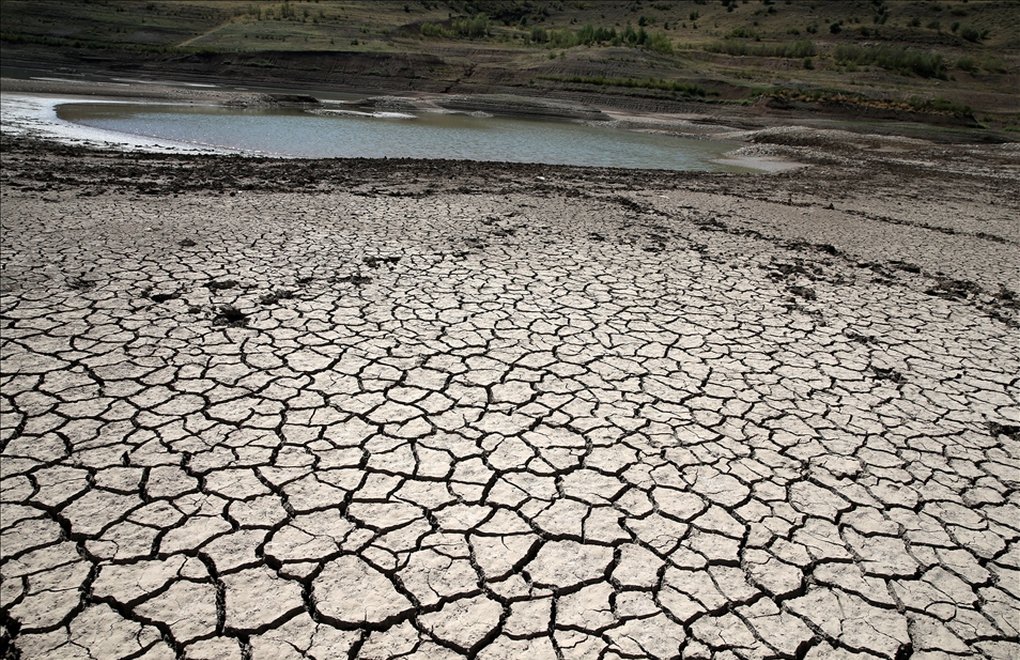Photo: AA/File
In the last days, İstanbul saw not only beautiful blue skies but also heavily polluted air, with the air quality index indicating that there were eight times the recommended amount of fine particles in the afternoon of January 3.
Besides jammed traffic and polluting boats and cruises going through the Bosphorus, one of the reasons for the recent toxic air in İstanbul was the recent lack of rain. As rainfall typically washes away most of the common air pollutants.
However, it is this persistent lack of precipitation that Türkiye needs to start dealing with. Due to climate change severely affecting the Mediterranean basin and, therefore, Türkiye, this area is getting drier due to average temperatures gradually creeping up and rainfall becoming scarcer, impacting the rain's removal effect,
The situation will remain exceptionally dry
This autumn, in particular, has been dry, with figures from the Ministry of Agriculture and Forestry pointing out a drop in the cumulative average rainfall of 28.6 percent between October 1 and December 1 across the country.
Experts indicate that the situation will remain exceptionally dry in the next three months. "We have a temperature period ahead of us that stays above the average until summer." Adil Tek, the head of the Boğaziçi University Kandilli Observatory Meteorology Laboratory, explains.
The current drought may paradoxically create flooding in its wake, as from April, the precipitation will likely be higher than normal in many of Türkiye's regions.
"In the forecasts, the precipitation is above the average. The risk of flooding and overflow in April seems to be very high." Tek says.
Another effect of the global warming crisis is that snowfall will become less likely. Adil Tek describes, "Snowfall happens for one or two days and does not last very long. Past winter, it snowed in İstanbul one day and nothing was left the next day. These transitions and troubles may start to occur."
More extreme weather conditions
One reason for the more extreme weather and severe fluctuations between droughts and heavy rainfall is the country's rising temperatures due to climate change.
Between 1949 and 2021, the average annual temperature rose by around 2.0 °C, from 12.6 °C to 14.5 °C and expectations indicate that Türkiye's temperature will go up by another 6.5 °C in the next 80 years.
Surging heats boast the air's capacity to retain water vapor, bringing forth more extreme weather conditions, as the average rainfall will occur with more spatial variability, which entails more intense short-term severe downpours.
"We will start living in a less rainy region. We must get used to this, as it will become completely normal. Knowing that we have to live with less water, we must adjust our actions accordingly." Levent Kurnaz, a climate scientist working at Boğaziçi University, explains.
"We will start living in a less rainy region. We must get used to this, as it will become completely normal. Knowing that we must live with less water, we must adjust our actions accordingly."
With the ongoing droughts, Kurnaz emphasizes that correct water usage and using less water in the industrial and agricultural sector is necessary. "We usually make warnings about water use in July-August. Now, already in January, we have to warn that 'We must use our water correctly.' "
İstanbul's dams at all time low
For example, in İstanbul, the water occupation rate of İstanbul's dams, providing water for over 15 million people, was at a twelve-month low in November 2022. With only 35.47 percent filled, according to the city's Water and Sewerage Administration (İSKİ).
However, these low figures are not solely the result of climate change and the lack of persistent lack of precipitation. In the last decade, some of İstanbul's "mega projects," such as the third Bosphorus bridge, the Northern Marmara Highway, and İstanbul's new airport, have been constructed in the metropolis's wetlands and forests, endangering the city's freshwater basins.
Furthermore, population growth and rapid urbanization plunged Türkiye into 'water stress'. Data from the Ministry of Environment, Urbanization and Climate Change, revealed that the current amount of usable fresh water per capita in Türkiye is 1,566 cubic meters, below the water stress threshold of 1700 cubic meters. (WM/VK)







.jpg)
.jpg)